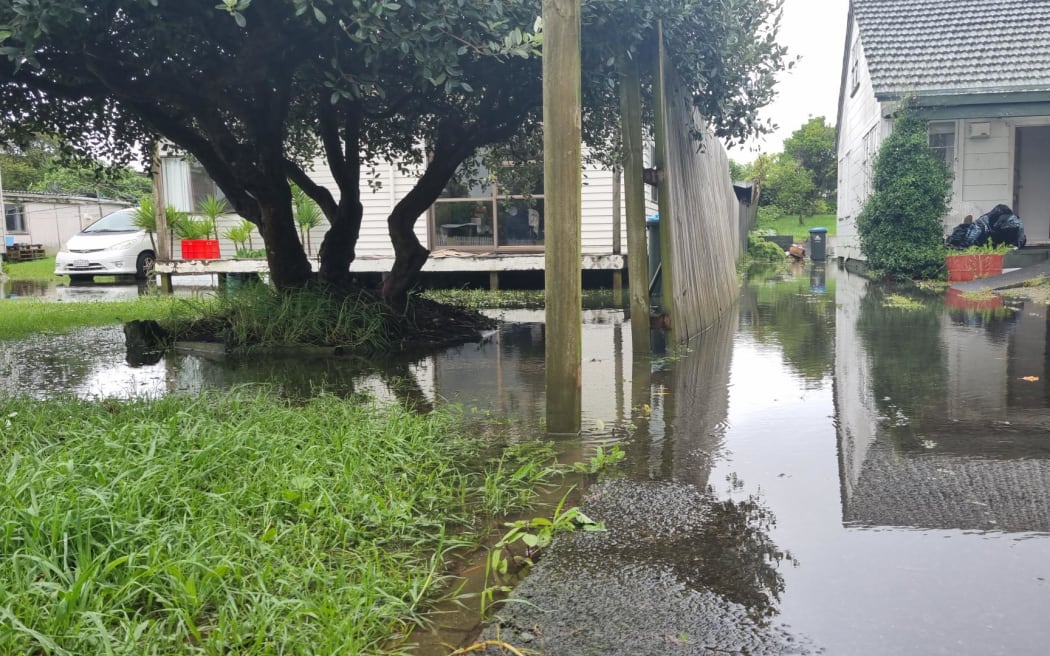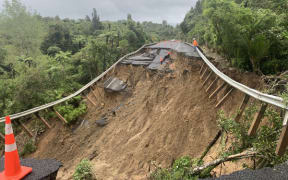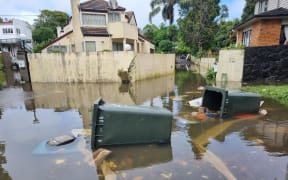
Photo: RNZ / Rayssa Almeida
January was Auckland's wettest month since records began, according to meteorologists.
The Central Auckland Rainfall series recorded a total of 539mm of rain at Albert Park, smashing the previous monthly record of 420mm from February 1869.
Honorary Associate Professor Anthony Fowler, from the School of Environment at University of Auckland, said nothing in the observational record had come close to what we've seen in the past few weeks.
"Total January rainfall was more than twice the previous record for the month, contributing to an exceptionally wet summer and the wettest three months on record. It was already a very wet January before the storm on the 27th, but that single event doubled the total over a single day.
"Rainfall intensities in the early evening, at the height of the storm, were quite astounding."
The fiercest rainfall produced widespread flooding across Auckland on Friday, 27 January, which NIWA described as at least a one -in-200-year event. On that day, Auckland's Albert Park was drenched with 280mm of rain in under 24 hours and 211mm in under six hours.
In total, Central Auckland experienced over 45 percent of its yearly rainfall in just one month, where the annual average is 1190mm. This is over 8.5 times that of a typical January and over 2.5 times of an entire summer.
NIWA meteorologist Ben Noll said elements came together in a "perfect storm" to cause the unparalleled deluge.
"A slew of environmental factors contributed to this extreme event - a formidable La Niña and marine heatwave led to more moisture being available, which was harnessed by an atmospheric river," Noll said.
"High pressure to the south then blocked it, keeping it in place. The storm was also supported by unique phenomenon called a low-level jet, as well as converging winds that extended lengthwise across the most populated part of the country.
"All of these factors leveraged the atmosphere's tremendous moisture content to drop an entire summer's rain in less than a day. And if it sounds complex, that's because it is - extreme events occur under extreme circumstances."
NIWA climate scientist Dr Sam Dean said this event was made more intense due to the influence of climate change.
"The Earth has warmed by about 1.1C already because of human activity and this extra heat gives more power to extreme rainfall. All other things being equal, we would expect climate change to contribute between 10-20 percent more rain in the most intense part of this storm.
"This feeds into a proportionately larger effect on the extent and depth of flooding, causing more damages and costs. It's imperative to consider whether climate change has increased the likelihood of the storm's precursor conditions occurring again - will these events become more likely as tropical weather expands southwards? If so, New Zealand must be able to adapt."
The rain across northern New Zealand resulted in extensive damage due to widespread flooding.
Four people have lost their lives and many hundreds have been displaced, with dozens of properties destroyed. Flights ground to a halt after Auckland International Airport was flooded and had to close, leaving thousands stranded abroad, some not able to get flights back for weeks.
NIWA urban aquatic scientist Dr Annette Semadeni-Davies said Auckland's flooding had put the limelight on nature-based alternatives to traditional stormwater systems.
"Many parts of the network are ageing and under increasing pressure from continued urbanisation and greater rainfall intensity," she said.
"Nature-based solutions, such as infiltration basins, ponds and wetlands, have been put forward as additions to our current pipe-based systems for flood protection.
"However, these alone won't be enough. We also need to explore low-risk infrastructure that diverts and stores water more effectively, introduce managed retreat for vulnerable areas, and continued maintenance and upgrades to our existing drain network."




